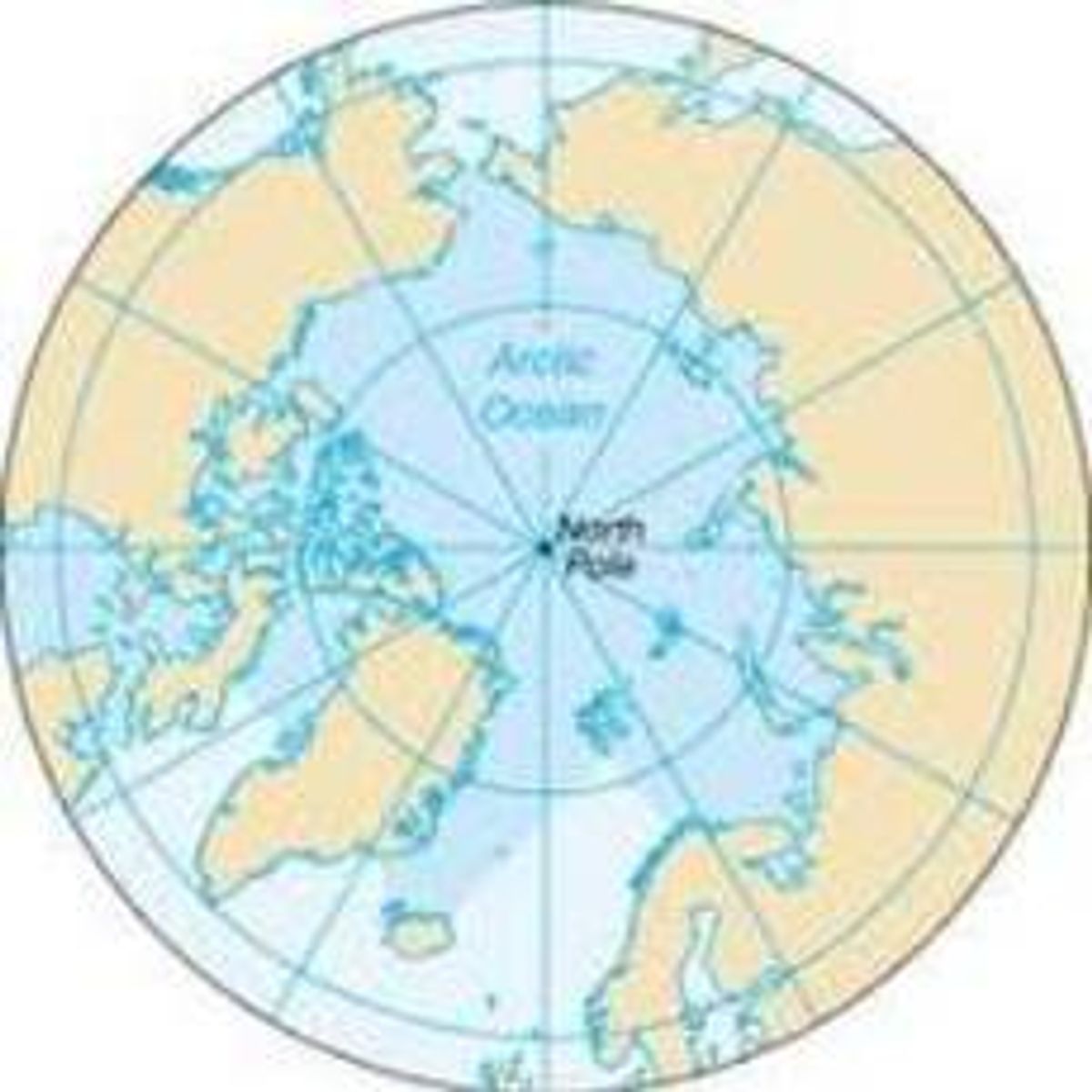Shell Oil is expected to get permission from the U.S. government to begin exploratory drilling in the Beaufort Sea north of Alaska next summer. The Shall news is being interpreted as an easing of the Obama administration's policy toward offshore drilling, but it also is a reminder of the big oil and gas stakes increasingly disputed in the Arctic Ocean area.
Russia, which has coasts going about halfway around the ocean, is of course the big gorilla in the room. Three years ago, on August 2, 2007 to be exact, it got the world's attention when one of its submarines planted a Russian flag on the seabed at the North Pole. No doubt the main purpose of the expedition was to assert a point, but it also had a quasi-scientific purpose--to gather evidence to bolster Russia's claim to continental shelf reaching out to the Pole.
According to the U.S. Geological Survey, the Arctic may hold about one fifth of the world's remaining oil and gas reserves. Some Russian planning takes the Arctic to be crucial to the country's economic strategy and prospects, starting as early as 2020. Already, Russia's Gazprom is involved with France's Total and Norway's Statoil in developing the Shtokman field, on Russia's northern coast.
Until recently, areas along that coast were considered barely accessible, but with the summer ice thinning radically, ships are now able to traverse the fabled Northeast Passage, linking the North Atlantic to the northern Pacific. As one recent report noted, “A Norwegian cargo ship has already traversed the Northeast Passage faster than expected and without encountering any major challenges." As the Earth continues to warm, the cost of extracting Arctic oil and gas will fall, even as the need for it mounts. No wonder we're hearing some overheated rhetoric comparing the Arctic race that's shaping up to the "scramble for Africa" and the California gold rush. There's also loose talk of developing a Kennan-style containment doctrine for the Arctic, to push Russia back and give NATO a new mission.
However inflated that kind of language may be, the stakes are not trivial. Norway and Russia are maneuvering for position in the Barents Sea, where Statoil recently made its biggest find in decades, advancing their claims at the United Nations Commission on the Limits of the Continental Shelf. Denmark is engaged in the same kind of struggle with Russia over seabed north of Greenland.
Canada, which is increasingly concerned as much about control of newly opening sea routes as it is over resource claims, is purchasing eight new armed ice-breaking patrol ships, has been conducting Arctic military exercises, and is constructing a base on Ellesmere Island. The European Union is bidding for a seat on the Arctic Council, consisting of Canada, Denmark, Finland, Iceland, Norway, Russia, Sweden, and the United States.



